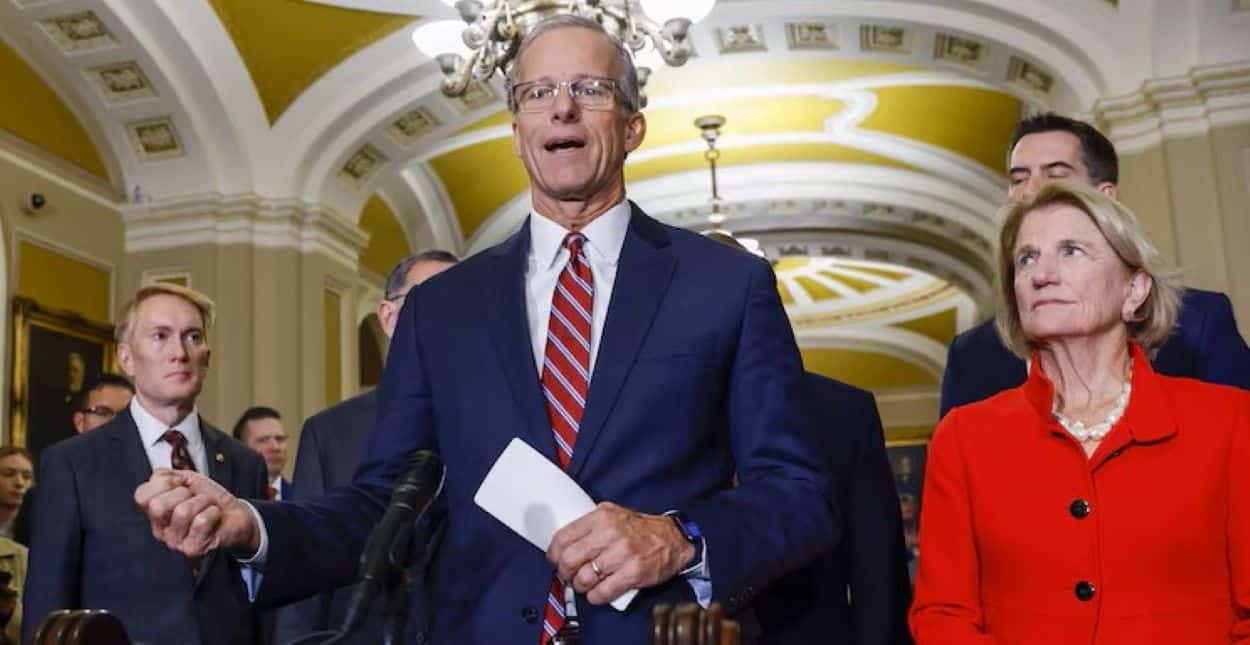After a competitive run-off, John Thune emerged as the next US Senate leader, surpassing John Cornyn of Texas and Rick Scott of Florida.
Thune, who holds a junior leadership role and represents South Dakota, affirmed his support for President-elect Donald Trump’s agenda, stating, “Our work starts today.”
This leadership change occurred as Senate members, valuing their independence, navigated the dynamics of Trump’s incoming administration. Although Cornyn brought extensive experience, Thune aligned more closely with the party’s traditionalist faction. Despite Trump allies’ preference for Scott, a staunch loyalist, his lack of popularity and Trump’s non-endorsement diminished his chances.
The Senate’s election reflects its intention to maintain autonomy while considering Trump’s proposals, including controversial recess appointments that bypass normal confirmation processes. Thune has signalled openness to such appointments, passing what some view as a loyalty test imposed by Trump.
The Republican victory in the Senate coincides with the party likely retaining control of the House, setting the stage for comprehensive control in Washington. Both chambers are now focusing on funding the government to prevent shutdowns, with discussions on a stop-gap measure extending into March.
Amid these developments, Trump plans to pursue contentious policies, including broad pardons related to the Capitol storming and significant tariffs, despite some internal reservations about the impact on the national debt.






